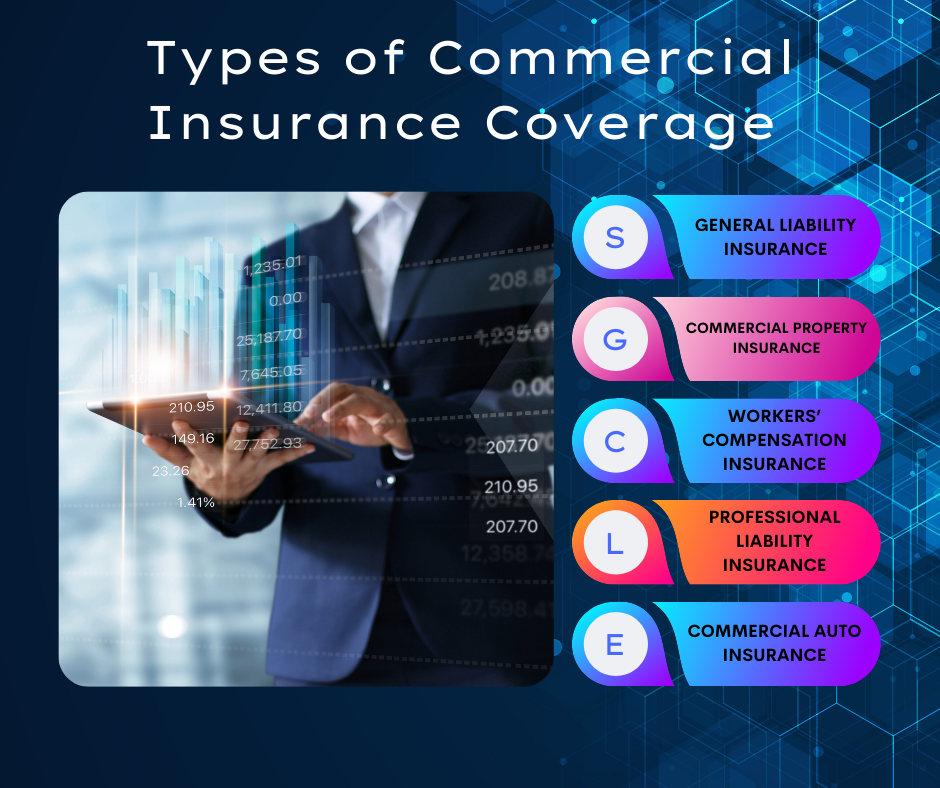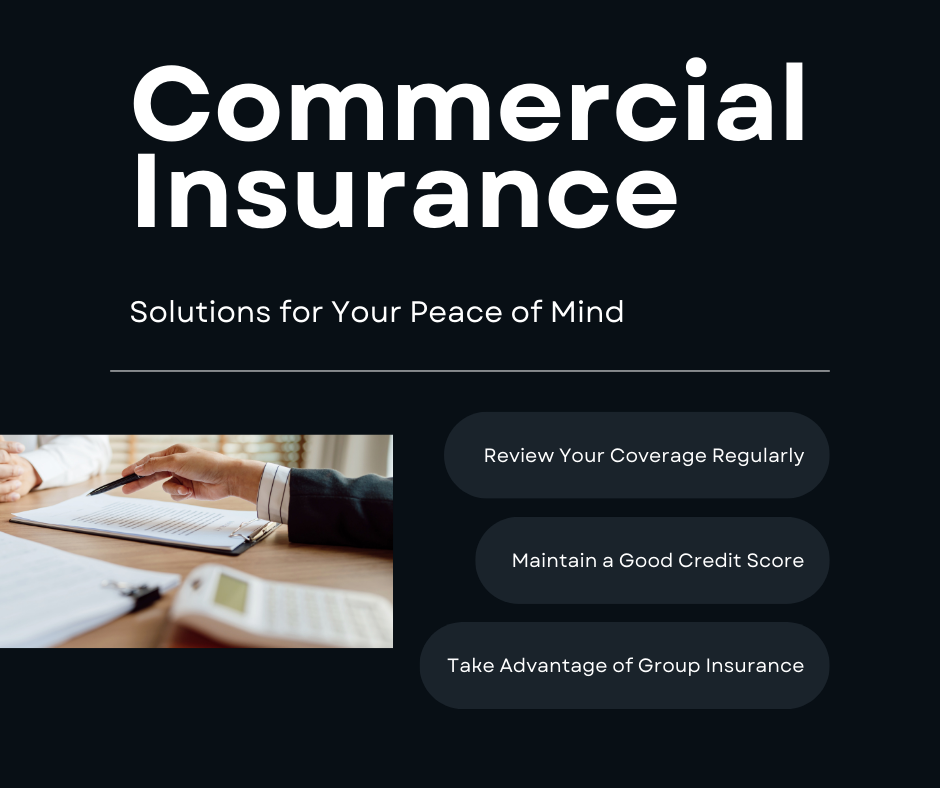Commercial insurance is the safety net that keeps a business standing when the unexpected hits whether that’s a customer injury, a lawsuit, a cyberattack, or a burst pipe.
What is commercial insurance? It’s the bundle of coverages that protect your people, property, and cash flow so one bad day doesn’t become a closed-for-good sign. In an economy powered by small enterprises, the stakes are real: there are more than 33.1 million small businesses in the U.S., employing about 61.7 million people, 46.4% of the private workforce. ForbesOffice of Advocacy.
Speaking from industry research and citing trusted sources like Forbes Advisor and the SBA, this guide will quickly show you why commercial insurance isn’t a “nice to have,” but a core part of doing business at any stage from solo startups to growing teams. ForbesOffice of Advocacy
What is Commercial Insurance?
At its core, commercial insurance is a type of protection designed specifically for businesses. Commercial insurance definition: it is a set of policies which cover financial loss caused by risks like lawsuits, damage on property and/or injury to employees, or natural calamities.
Think of it like a safety net: like a net that ensnares a performer in case he makes a slip, commercial insurance is a net that ensnares your business when accidents, claims or other unwarranted circumstances threaten to destroy it. Commercial insurance on small businesses is particularly important to many owners; they need not worry that a single lawsuit or other unpredictable event can ruin a year’s effort. Whether you own a family shop, a technology business startup or a growing operation, the right coverage ensures that you can concentrate on growth rather than thinking about what might happen.
To dive deeper, you can learn more about business insurance coverage and consider which policies are most likely to suit you.
Why Do Businesses Need Commercial Insurance?
The risks associated with running a business are indefinable. Whether it is a slip-and-fall accident, a cyberattack or a natural disaster, any sudden event will make a dent in the checking account. That is why commercial insurance is needed. It protects your assets, employees, and reputation.
Even though 92% of small businesses have some form of insurance, only 13% feel fully prepared for risks (NextInsurance). This gap indicates that a number of businesses believe that they are insured, yet they are exposed to losses that could ruin them. Indeed, as much as 75 percent of small businesses are underinsured (Hiscox), which renders the company in jeopardy should a severe claim develop. Based on commercial insurance cost opportunities such as the size of businesses, industry risk exposure, and the coverage amount, owners can plan properly. Also, it is always important to understand the commercial insurance claims process so that when things go wrong, your company can easily recover due to lack of absolute stress.
By presenting these risks with trusted statistics, show that underinsuring a business can lead to its downfall. Commercial insurance is not a choice, it is a measure of ensuring the future of the company.
Types of Commercial Insurance Coverage (Core Coverages)
It is vital to learn about the types of commercial insurance coverage to protect business against financial risk. Not all policies address the same aspects of operation thus understanding what options you have will ensure that you develop a thick safety net.

General Liability Insurance
It safeguards your company against bodily injury and/or property damages or even advertising errors. An example would be when a customer falls in your store or when your marketing makes a mistake and a dispute arises, this policy coverage comes in. Learn more about General Liability insurance.
Commercial Property Insurance
This insurance provides insurance of your business property such as buildings, equipment, and stock against fire /theft /natural calamities. This ensures that property damage doesn’t derail your operations. Learn more about Commercial Property insurance.
Workers’ Compensation Insurance
Workers compensation insurance entitles the employees who get injured during practice of their employment to medical and wage benefits. Such insurance does not only protect your staff but it also cushions the business against expensive legal claims. Find out more about Workers Compensation insurance.
Professional Liability Insurance / E&O
Errors and Omissions insurance is also known as Professional liability Insurance and insured against claims in regard to errors or negligence of professional services.
Commercial Auto Insurance
Commercial auto insurance provides coverage to vehicles that are owned by your business in the event of an accident, damage and liability of utilization of the vehicles in the course of business.
Leading insurers such as Hartford, AmTrust, and Nationwide are all masters of these dependable solutions, providing safe coverages that keep a business safe and in full compliance with the law. With this knowledge of these simple forms of insurance, it is in your power to select the right mix, in order to ensure that your business is safe against real world risks.
Specialized / Modern Coverages
The risks that businesses face evolve with the business as it grows. In addition to conventional policies, contemporary businesses require customized business insurance to cover emerging risks.
Cyber Insurance / Data Breach Insurance:
Protects against digital threats like data breaches and ransomware attacks. Costs $145/month.
EPLI (Employment Practices Liability Insurance):
Covers claims related to workplace discrimination, harassment, wrongful termination, or retaliation.
Commercial Umbrella Insurance:
Provides extra liability coverage above standard limits. Acts as a safety net for unexpected large losses.
Crime Insurance:
Protects against theft, fraud, forgery, and employee dishonesty.
Executive Liability Insurance (D&O):
Safeguards business leaders against lawsuits related to their management decisions.
Key Person Insurance:
Covers the loss of critical employees whose absence could impact revenue or operations.
Trusted insurers like TechInsurance, AmTrust, and Nationwide offer solutions tailored to these emerging risks.
Bundled Options: BOP vs Commercial Package Policy
Small companies often prefer bundled insurance in order to ease the coverage. Business Owners Policy (BOP) is general liability and property insurance combined, and Commercial Package Policy (CPP) permits customization as it includes a variety of coverage. Comparing BOP vs commercial package policy helps business owners decide what fits best.
On average, a BOP costs $57/month for small businesses (Insureon), making it an affordable starting point for essential protection. For more options, explore affordable BOP coverage.
How Much Does Commercial Insurance Cost?
Commercial insurance costs greatly depending on the nature of your business, the size, and location of the business and the risk associated with conducting that particular business. Commercial insurance cost factors enable you to have a budget plan and select the ideal insurance coverage.
Here are some small business cost guides in a nutshell:
| Coverage Type | Average Monthly Cost | Source |
| General Liability | $42 | Insureon |
| Workers’ Compensation | $45 | Insureon |
| Broad Average (all coverages) | $249 | Forbes |
How to select commercial insurance refers to calculating risks you have in business, limits of cover you require, and the reputation of the insuring company. General liability and workers compensation are relatively cheap but if you combine them into one, the monthly bill might increase but the combination keeps it profitable to guarantee protection.
To provide official advice to the small business owners so that they can make their decisions and be confident about the proper knowledge available we refer to valid sources such as Insureon and Forbes.
How to Choose the Right Commercial Insurance
Choosing the right commercial insurance requires a clear, step-by-step approach to ensure your business is properly protected. Here’s a simple process:
- Assess Risk – Identify the potential risks your business faces, from property damage to employee injuries or cyber threats.
- Compare Coverage Types – Evaluate which policies fit your needs, including general liability, property, workers’ comp, and specialized coverages.
- Get Quotes – Request quotes from multiple providers to find competitive pricing.
- Review Exclusions – Pay attention to what is not covered to have no unpleasant surprises in case of a claim.
- Work with a Broker or Agent – Choose between using commercial insurance broker versus agent; the former are likely to provide several choices, whereas the latter are usually specialized in one or several carriers.
💡Tip: According to specialists, before turning to a broker, it is advisable to a business owner record incidents and claims history in the past. The tips of this real-life understanding can smooth quotes and assure their coverage. A small business owner stated that he saved 20% because of providing detailed risk information in advance.
To get more customized advice, contact an insurance professional to get the most appropriate coverage to serve your business.
FAQs
What is commercial insurance and why is it necessary for small businesses?
Small businesses are covered by commercial insurance, replacing the occurrence of such unexpected events as accidents or property damage. It is vital to small businesses because more than 46 percent of the workforce are employed by smaller businesses (Forbes).
How much does commercial insurance cost on average?
Nationally, the cost of commercial insurance averages at approximately 1200 to 2500 a year on small businesses. The cost differs depending on the size of the business, the sector in which the business operates, and the coverage requirement (Insureon, Forbes).
What is a Business Owners Policy (BOP) and how does it differ from standalone policies?
A BOP provides the following in a single combination and at a lower rate: important coverages such as liability and property insurance. Standalone policies are independent and possibly more appropriate to meet special requirements.
How can small businesses reduce their commercial insurance premiums?
The business may develop strategies to reduce premiums by employing risk management strategies, bundling the policies, and adopting high deductibles. Such initiatives are capable of bringing down the total expenditure.
Why are many small businesses underinsured, and what risks does this pose?
75 percent of small companies are underinsured (Hiscox) because of inaccurate estimating or budget pinching. Underinsurance exposes businesses at risk of losing their money and business operation.




